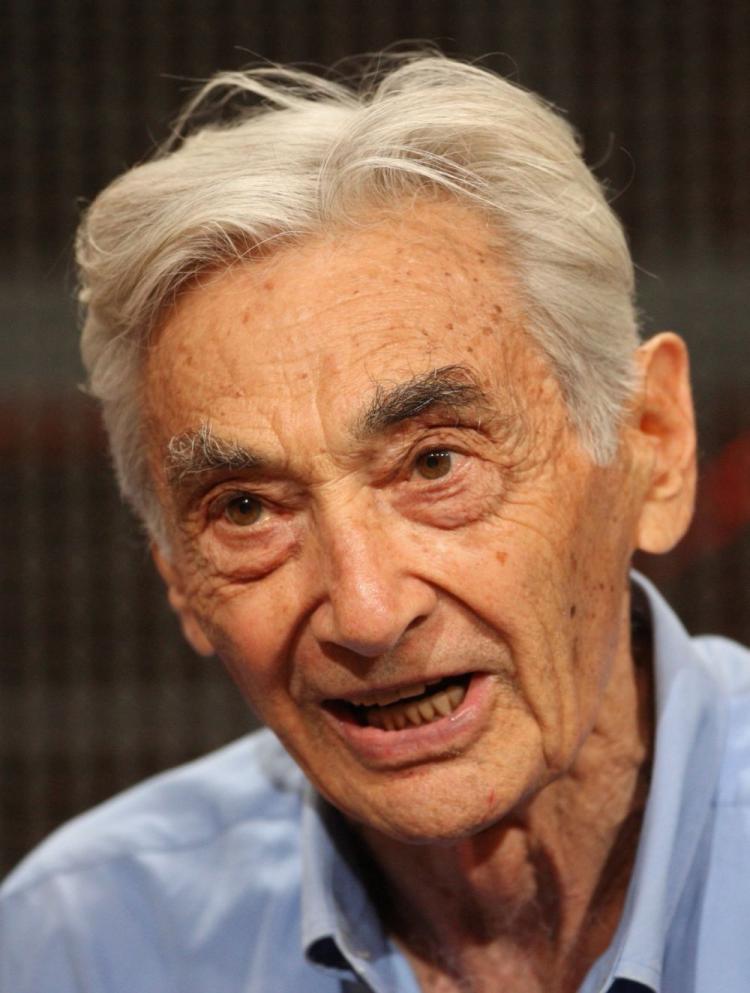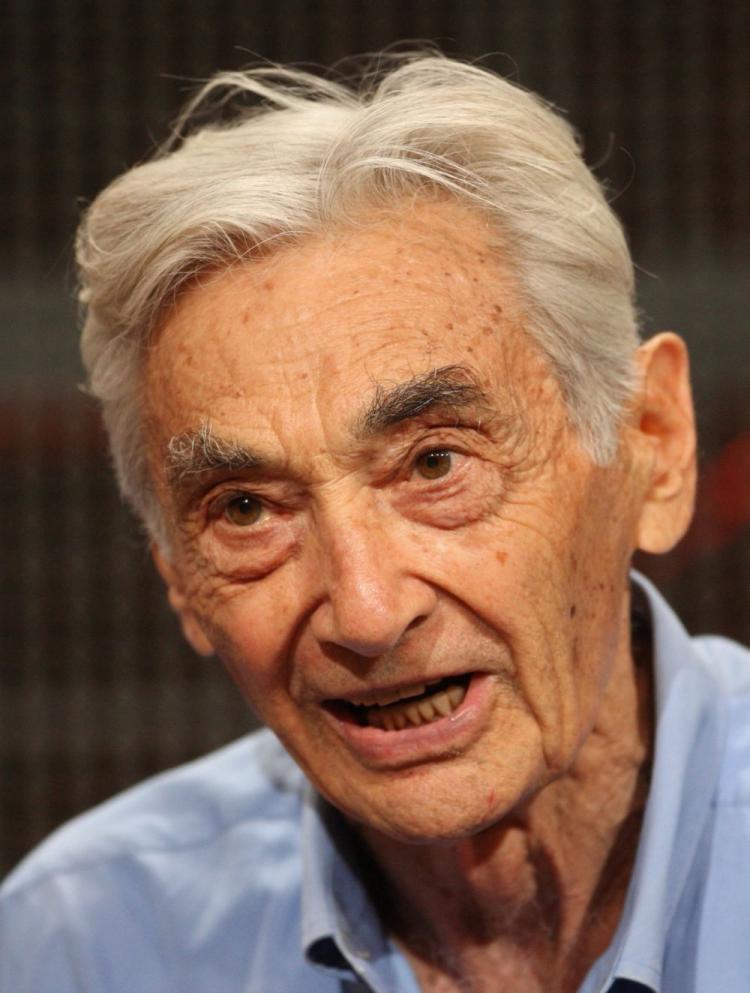Historian Howard Zinn devoted his life to telling the story of “those who suffered silently or fought back magnificently.” The scholar and activist died of a heart attack at age 87 on Jan. 27.
In a recent interview, Zinn told BigThink.com, an online think tank, that he wanted to be remembered, if he was remembered, as “somebody who gave people a feeling of hope and power that they didn’t have before.” The power he meant had nothing to do with force or wealth, he said.
Zinn said black people in the American South had that power and used it to change society. People who have overthrown tyrannies in other parts of the world used it.
His life’s work was about war, power, human rights, and equality, he said.
He felt a citizen should always be ready to rebel. He recommended staying suspicious of all government, because an authority which claimed to be benevolent could easily become “ossified and dictatorial.”
Zinn’s most well known books were “A People’s History of the United States,” and “You Can’t be Neutral on a Moving Train.” In his books and in his actions, he celebrated ordinary human beings. NPR broadcast him reading from “A People’s History of the United States” today. He said he wanted to tell about the Industrial Revolution from the perspective of mill workers, about Columbus coming to America from the perspective of Native Americans.
He wrote that it was easy for historians and scholars to glorify heroes such as Christopher Columbus, while downplaying the genocidal effects of their actions. It would be cheap to criticize Columbus now, and that was not what he would do. As a historian, he wanted to be sure people do not accept atrocities as a necessary part of progress. “Atrocities are still with us because we have learned to bury them,” Zinn said.
People accept tragedies such as “sacrificing Hungary to save socialism” because of a learned sense of proportion, he wrote. He also thought the idea that injustice should be accepted as an inevitable part of progress was more easily accepted from scholars than from politicians.
His life’s work was to make sure no one accepted the necessity of what is now called “collateral damage.” Scholars are complicit in injustice when they tell history in a way that downplays the suffering of ordinary people, he wrote.
As a professor at Spelman College in Atlanta in the 1960s, he taught novelist Alice Walker and youth advocate Marian Wright Edelman. The college fired him because he encouraged his students to take part in civil rights demonstrations.
After leaving Spelman, he taught at Boston University, where he refused to cross a picket line of striking clerical workers. That action led to conflict with the university president, but he was still a Professor Emeritus there when he died.
Zinn spoke against the Vietnam War and took part in the civil rights movement.
He also wrote “A Power Governments Cannot Suppress,” “The Twentieth Century, a People’s History,” “The People Speak: American Voices, Some Famous, Some Little Known,” “SNCC, the New Abolitionists,” and many more works.
In a recent interview, Zinn told BigThink.com, an online think tank, that he wanted to be remembered, if he was remembered, as “somebody who gave people a feeling of hope and power that they didn’t have before.” The power he meant had nothing to do with force or wealth, he said.
Zinn said black people in the American South had that power and used it to change society. People who have overthrown tyrannies in other parts of the world used it.
His life’s work was about war, power, human rights, and equality, he said.
He felt a citizen should always be ready to rebel. He recommended staying suspicious of all government, because an authority which claimed to be benevolent could easily become “ossified and dictatorial.”
Zinn’s most well known books were “A People’s History of the United States,” and “You Can’t be Neutral on a Moving Train.” In his books and in his actions, he celebrated ordinary human beings. NPR broadcast him reading from “A People’s History of the United States” today. He said he wanted to tell about the Industrial Revolution from the perspective of mill workers, about Columbus coming to America from the perspective of Native Americans.
He wrote that it was easy for historians and scholars to glorify heroes such as Christopher Columbus, while downplaying the genocidal effects of their actions. It would be cheap to criticize Columbus now, and that was not what he would do. As a historian, he wanted to be sure people do not accept atrocities as a necessary part of progress. “Atrocities are still with us because we have learned to bury them,” Zinn said.
People accept tragedies such as “sacrificing Hungary to save socialism” because of a learned sense of proportion, he wrote. He also thought the idea that injustice should be accepted as an inevitable part of progress was more easily accepted from scholars than from politicians.
His life’s work was to make sure no one accepted the necessity of what is now called “collateral damage.” Scholars are complicit in injustice when they tell history in a way that downplays the suffering of ordinary people, he wrote.
As a professor at Spelman College in Atlanta in the 1960s, he taught novelist Alice Walker and youth advocate Marian Wright Edelman. The college fired him because he encouraged his students to take part in civil rights demonstrations.
After leaving Spelman, he taught at Boston University, where he refused to cross a picket line of striking clerical workers. That action led to conflict with the university president, but he was still a Professor Emeritus there when he died.
Zinn spoke against the Vietnam War and took part in the civil rights movement.
He also wrote “A Power Governments Cannot Suppress,” “The Twentieth Century, a People’s History,” “The People Speak: American Voices, Some Famous, Some Little Known,” “SNCC, the New Abolitionists,” and many more works.







